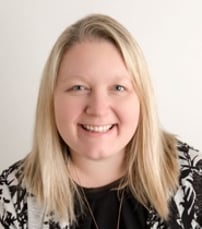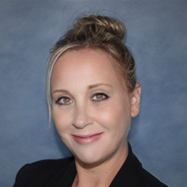Clinical Supervisor Training
Thursday, May 16, 2024
9:00 AM - 4:00 PM
Online via Zoom
Join the Blue Cross® and Blue Shield® of Minnesota Center for Rural Behavioral Health along with Angela Lewis-Dmello and Tiffany Breckenridge for continuing education geared towards clinical supervisors.
Sessions
Morning Session
9:00am - 12:15pm
Grasping Fog: The Reflective Use of Self and Its Application in Supervision
Angela Lewis-Dmello, MSW, LICSW
The supervisory relationship presents some unique challenges and opportunities involving effective use of self. Supervisors are frequently confronted with situations that may evoke strong personal reactions. This course will help participants develop a meaningful and accessible way to conceptualize, apply, and describe the process of “use of self” to themselves and their supervisees.
Participants will explore how the whole person of the supervisor can be effectively engaged in the way supervision is provided. Strategies for managing obstacles will be introduced, including self-insight, self-integration, empathy, anxiety management, and conceptualizing skills.
Learning Objectives:
- Identify personal attributes, beliefs, and potential triggers that influence the ways they function as a professional supervisor
- Examine important ethical and clinical consequence of self-awareness and self- influence on supervisory effectiveness
- Apply tools for identifying and evaluating reactions to supervisees
- Recognize how interpersonal dynamics in the supervisory relationship are often replicated in the supervisee’s relationships with clients
- Employ strategies for addressing personal insecurities that may limit supervisory effectiveness
- Understand how the supervisor’s use of self can be a catalyst for professional growth and improved performance by the supervisee
Afternoon Session
12:45pm - 4:00pm
Clinical Supervision: To Be Trauma-Informed Is to Be Culturally Responsive
Tiffany Breckenridge, DSW, LICSW, LCSW, CCTP
Clinical supervision influences how supervisees interact and intervene with client systems. Therefore, it is imperative for clinical supervisors to recognize the complexity of supervision from a trauma-informed, culturally responsive perspective. Participants will investigate the connection between trauma-informed and culturally responsive supervision. To understand both trauma-informed and culturally responsive supervision, participants need to consider the importance of not only assisting supervisees to be culturally responsive and trauma-informed practitioners, but also how they are trauma-informed, culturally responsive supervisors. Participants will explore a multicultural relational perspective focus of clinical supervision and how to employ culturally responsive and trauma-informed methods, strategies, techniques, and evaluations in clinical supervision practices.
Learning Objectives:
- Explore the connection between trauma-informed and culturally responsive supervision practices.
- Apply Multicultural Relational Perspective to clinical supervision.
- Examine methods for delivering culturally responsive supervision through a trauma-informed lens.
- Review strategies and techniques of culturally responsive and trauma-informed supervision relationship.
-
Identify various evaluation tools of culturally responsive supervision practices.
Cost: $125
Email workforce@mnsu.edu for more information.
Earn 6 CEUs in Clinical Supervision!
CEU hours approved by the following boards:
- MN Board of Social Work
- MN Board of Marriage and Family Therapy
- MN Board of Behavioral Health and Therapy (LPC, LPCC & LADC)
- MN Board of Psychology
- SD Board of Addiction and Prevention Professionals
- SD Board of Counselor Examiners
- SD Board of Examiners for Counselors and Marriage and Family Therapists
- ND Board of Psychology Examiners
- WI Department of Safety and Professional Services (Marriage and Family Therapy, Professional Counseling, and Social Work Examining Board)
Meet Your Trainers:
Angela Lewis-Dmello, MSW, LICSW

Angela Lewis-Dmello is the President and CEO of Northeast Youth and Family Services. She has experience in nonprofit leadership, program development and evaluation, training and supervision, and trauma treatment research. Angela is passionate about both individual level and systems level change and is thrilled to support NYFS’s work providing trauma informed and culturally responsive care to the community, with a focus on youth and their families.
Angela is trained as a clinical social worker and has spent the majority of her career working in trauma-laden environments as an administrator and psychotherapist in child sexual violence, domestic violence, refugee resettlement, and torture trauma. Angela has experience providing trainings and workshops on a variety of topics related to trauma and interpersonal violence, as well as leadership and supervision locally, regionally, and nationally. Angela is especially invested in addressing workforce level issues such as provider attrition from the mental health and nonprofit sectors through organizational interventions supporting staff wellness and work sustainability by addressing secondary trauma, vicarious trauma, moral injury, and burnout.
Angela holds a bachelor’s degree in global studies and a master’s degree in social work from the University of Minnesota. Angela served as a Community Adjunct Faculty member at the University of Minnesota School of Social Work teaching graduate students psychotherapy methods courses from 2012 - 2021. Angela founded Transforming Trauma to provide training and consultation to organizations implementing trauma responsive care, staff wellness and secondary traumatic stress initiatives, reflective practice, and healing following organizational trauma.
Tiffany Breckenridge, DSW, LICSW, LCSW, CCTP

Registration Questions: Email workforce@mnsu.edu or call 507-389-1094
Training Questions: Email elizabeth.harstad.3@mnsu.edu
Center for Workforce Professional Education
workforce@mnsu.edu


